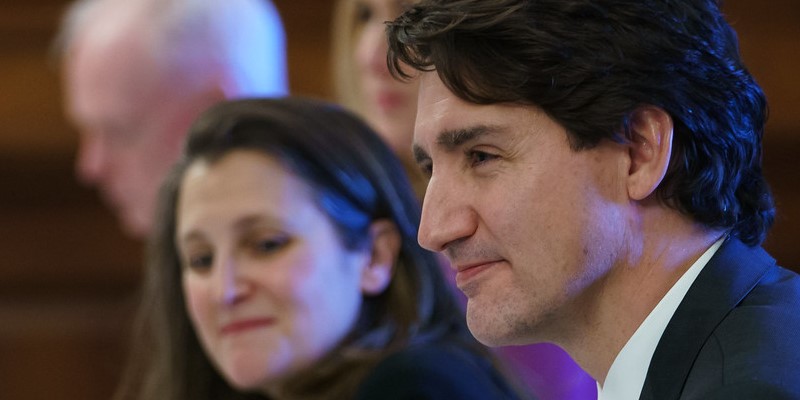A legacy of debt and dependence for future generations, it seems...
Federal budget’s scale of spending and debt reveal a government lacking self-control
As it has done nine times before, the Trudeau government will borrow to fund some of its spending spree, resulting in a projected budget deficit of $39.8 billion this year, which is $4.8 billion higher than previously
forecasted. And it doesn’t intend to stop borrowing, with annual deficits exceeding $20 billion planned for the subsequent four years. This represents a notable increase in deficits compared to what was expected in the
last year’s budget. Simply put, there’s no plan for a return to balanced budgets any time soon. As a result, federal debt (net debt minus non-financial assets) is expected to climb $156.2 billion from now until April 2029.
To make matters worse, the government is also increasing the capital gains inclusion tax rate from 50.0 per cent to 66.6 per cent for capital gains realized above $250,000. This will act as a huge disincentive for individuals and businesses to invest in Canada at a time when the country already struggles to attract the very investment we need to improve productivity, economic growth and living standards. Businesses and individuals will now simply invest their capital elsewhere.
There’s a large body of research that finds low or no capital gains taxes increase the supply and lower the cost of capital for new and growing firms, leading to higher levels of entrepreneurship, economic growth and job creation—precisely what Canada needs more of today and in the future.
While the government did boast about its ability to hold the 2023/24 deficit at $40.0 billion, this had little to do with responsible fiscal management. Instead, the government enjoyed higher-than-anticipated revenues of $8.3 billion, but repeated its all too
frequent and ill-advised approach of spending that money and wiping out any chance to reduce the deficit.
Growing federal debt leads to higher debt interest costs, all else equal, which eat up taxpayer dollars that could otherwise have provided services or tax relief for Canadians. For context, the government now spends more ($54.1 billion) on debt interest as on health-care transfers to the provinces ($52.1 billion). Accumulating debt today also increases the tax burden on future generations of Canadians who are ultimately responsible for paying off this debt.
Research suggests this effect could be disproportionate, with future generations needing to pay back a dollar borrowed today with more than one dollar in future taxes.
But again, it didn’t have to be this way. As we
pointed out before the budget, had the government simply limited the growth in annual program spending to 0.3 per cent for two years, it could have balanced the budget by 2026/27 and avoided significant debt accumulation.
Instead, the government chose to increase annual program spending by an average of 4.4 per cent over the next two years and kick the debt problem down the road for another government to solve. Simply put, the government’s fiscal strategy is not all that different from an overzealous child that eats all their Halloween candy in one night even though they fully understand it won’t end well.
Yet for all this spending and debt, living standards have not improved for Canadians. In fact, inflation-adjusted GDP per person was actually
lower at the end of 2023 than it was nine years prior in 2014. And going forward, the OECD predicts Canada will record the lowest
growth rates in per-person GDP up to 2060 of any industrialized country—meaning countries such as New Zealand, Italy, Korea, Turkey and Estonia would all surpass Canada with higher living standards.
In 2024/25, federal program spending will reach a projected $483.6 billion—up $16.1 billion from the previous budget’s estimates.

www.fraserinstitute.org


